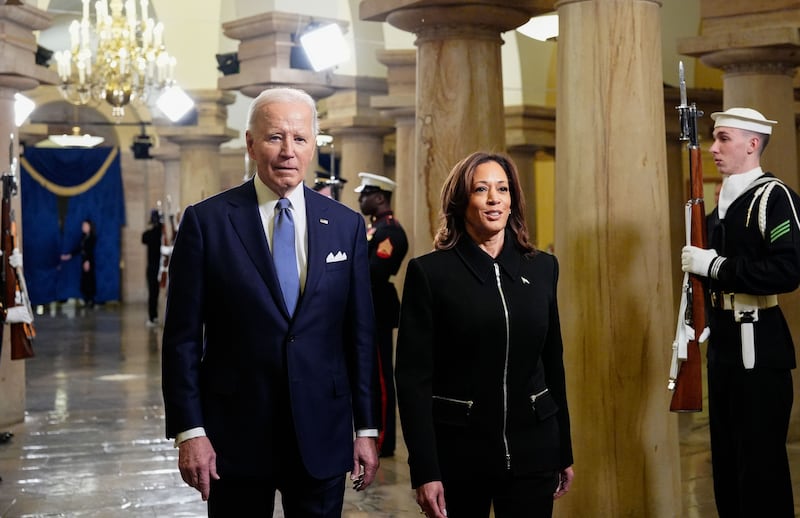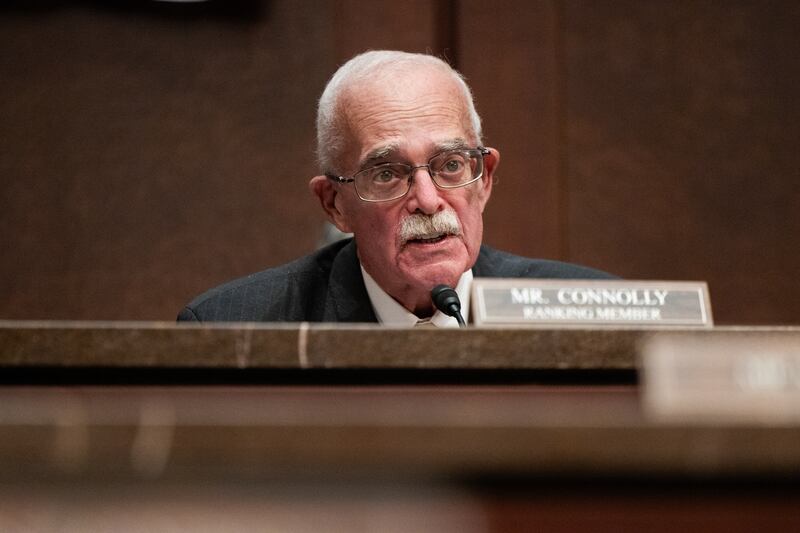Thanks to an onslaught of gossipy new tell-all books, President Joe Biden’s age and the effect it had on his ultimately failed re-election campaign are back in the news. This is in turn reigniting the sometimes uncomfortable but important conversation about gerontocracy in politics, and way in which leaders staying long past their ability to capably serve has hurt our country.
Back in February, I made the public call for Democrats in Congress over the age of 70 to consider making this their last term. And now, just a few months later, the tide is beginning to turn.
A growing number of the party’s leaders are choosing to step aside: Senators Gary Peters, Dick Durbin, Jeanne Shaheen and Tina Smith have all announced that they won’t seek re-election in 2026. Representatives Gerry Connolly and Jan Schakowsky have done the same.
Their decisions mark a generational inflection point. An acknowledgment that the work of building a better future sometimes means making space for those who will live to see more of it. In other words, this wave of retirements isn’t a crisis for Democrats. It’s precisely the opportunity that’s needed.

When older leaders step aside, they make room for new energy, new ideas and new leaders who better understand today’s political climate—and who know how to meet this moment with unmatched urgency and clarity.
Just look at the incredibly robust field shaping up to replace Sen. Peters in Michigan. We have talented young candidates from across the ideological spectrum duking it out to see who will have the honor of carrying the Democratic mantle into the general election. It’s healthy for our democracy—and frankly, it’s far more exciting than the alternative.
That’s not to say that seniority isn’t important at all. It is! But leadership is not, and cannot be, a lifetime appointment. And public service should be about service, not longevity or because the individual can’t imagine life without the title.
It was alarming to hear Rep. Jim Clyburn— a leader who has been at the forefront of the progressive movement for decades, and who’s leveraged his wealth of experience to earn hard-fought gains for countless people across this country—recently)” href=”https://urldefense.com/v3/__https:/www.wsj.com/politics/house-democrats-are-having-a-public-fight-about-their-oldest-lawmakers-d99519c1__;!!LsXw!S3n4QPisqVSwJa4EAc1QgLOLgezV3G103KgiMqnKR5beJXnZtdejhbwL6Kf03T7iJK5jPwMe85ZOzz9s2Jpu_QhCIy3g$” rel=”” title=”https://urldefense.com/v3/__https:/www.wsj.com/politics/house-democrats-are-having-a-public-fight-about-their-oldest-lawmakers-d99519c1__;!!LsXw!S3n4QPisqVSwJa4EAc1QgLOLgezV3G103KgiMqnKR5beJXnZtdejhbwL6Kf03T7iJK5jPwMe85ZOzz9s2Jpu_QhCIy3g$”>recently ask the Wall Street Journal, “what the hell I’m supposed to do now?” when asked about generational turnover. “What do you want—me to give up my life?”
Similarly, it’s disheartening that Rep. Alexandria Ocasio-Cortez told reporters she was declining to run for the newly-open leadership position on the House Oversight Committee because “the underlying dynamics in the caucus have not shifted with respect to seniority as much as I think would be necessary.”

This moment isn’t just about passing a torch, it’s about lighting a fire under a party that has far too often moved too timidly when we’re in a moment that demands a fire alarm. It’s about finally recognizing that the skills that defined political success 30 years ago aren’t necessarily the skills that will define the next 30. It’s about meeting a new generation of voters and leaders where they are—and trusting them enough to hand over the mic.
I understand that change is hard. I understand the instinct to hold on. But I also see what happens when people let go. Possibility blooms. We get to ask the big questions—not just about what we’re fighting against, but what kind of world we’re fighting to build. Instead of debating whether a leader is too old to serve, why not focus on honoring their legacy and planning for what comes next?
There is a Democratic awakening underway. It’s not without tension. But it is necessary, and it is good. We are overdue for a sincere reckoning about the future of our political parties, and our government.
It’s time we normalize asking about succession plans. It’s time we demand prioritizing developing new talent at every level. And yes, it’s time we consider supporting primary challenges when incumbents refuse to recognize that their over-extended tenure comes at a cost to our future.
This much-needed conversation about leadership is in full force. Let’s have the courage to see it through.
The post Opinion: Democrat Leaders Must Pass the Torch—Or Risk Their Base Burning Out appeared first on The Daily Beast.




